 Dimitru Popescu, age 38, flew in from Valcea, Romania, this weekend
to celebrate the opening of his ARCA Space Corporation's new U.S.
Headquarters, located in Las Cruces, New Mexico, a city of 100,000 residents
situated in the Mesilla Valley desert-region of that State.
Dimitru Popescu, age 38, flew in from Valcea, Romania, this weekend
to celebrate the opening of his ARCA Space Corporation's new U.S.
Headquarters, located in Las Cruces, New Mexico, a city of 100,000 residents
situated in the Mesilla Valley desert-region of that State.
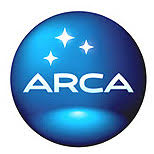
ARCA is an acronym for the Romanian Aeronautics and Cosmonautics Association.


Popescu was greeted by New Mexico Governor Susana Martinez, by Las Cruces Mayor Ken Miyagishima, by members of the city council and by other dignitaries.
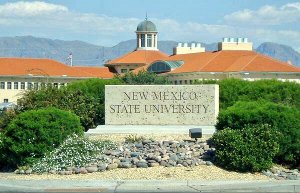
Mayor Miyagishima noted that the new business was a "perfect fit" for this region's bugeoning aerospace industry, with convenient access to facilities and researchers at the Las Cruces campus of New Mexico State University, and that Las Cruces has been named one of the three best cities in the U.S. for finding jobs in the science, technology, engineering and mathematics fields, according to a survey reported in today's issue of LAS CRUCES SUN-NEWS online newspaper. And Popescu had pledged that ARCA would bring at least 100 new jobs to Las Cruces this year
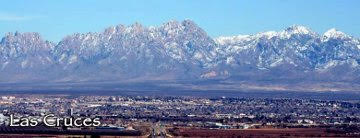
"We've been working hard to make New Mexico the place to be," Governor Martinez declared, "especially for manufacturing... We're proud to have a company like ARCA to diversify our economy."
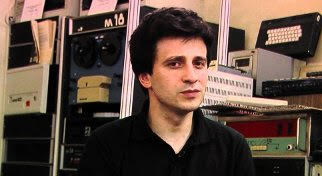
Eighteen years ago, when Dimitru Popescu was a third-year university student in Bucharest, he made the decision to abandon his studies in order to co-found with some college friends a privately-funded space program for Romania.
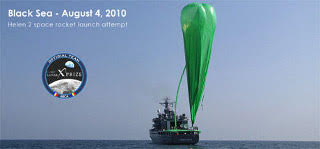 Among ARCA's several noteworthy accomplishments during the next
dozen years was its successful Black Sea launch in 2010 of Helen 2,
Romania's first Space Rocket, achieving the highest altitude then
reached by any flying object designed and built entirely in Romania,
and powered by a completely green rocket engine operating exclusively
with hydrogyn peroxide as fuel.
Among ARCA's several noteworthy accomplishments during the next
dozen years was its successful Black Sea launch in 2010 of Helen 2,
Romania's first Space Rocket, achieving the highest altitude then
reached by any flying object designed and built entirely in Romania,
and powered by a completely green rocket engine operating exclusively
with hydrogyn peroxide as fuel.
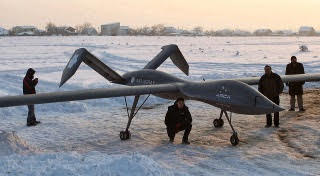
ARCA's newest commercial product, announced in November of 2014, which now is available for pre-ordering, is its AirStrato, an ultra lightweight drone-like unmanned autonomous flying vehicle, electrically powered and capable of flying at nearly twice the altitude of commercial jetliners.
It can be controlled from any part of the world via satellites or a mobile phone; it can takeoff and land from any remote location; it is quite beautiful, yet also affordable, with a price range between $80,000 and $140,000 -- inexpensive compared to other high-capability UAV's on the market, which cost from $500,000 to $4-million.
The company released the following brief video depicting AirStrato in flight:
AirStrato release-video from ARCA on Vimeo (1-1/3 minutes)
"When ARCA decided to create this aircraft we had only one goal in mind: to create a tool that will expand the human capabilities to explore and discover," Popescu said.

"You pursued a degree in theology," an interviewer asked Popescu in 2013. "Space and religion - really? Tell us more about your thinking!"
Dumitru: My colleague and I went to the Theology Faculty wishing mostly to improve our general knowledge. My great passion since I was a child was to build rockets. The Theology Faculty did nothing to help me in this endeavour. It only made me look to the sky more often, only from a different perspective.
... "Finally, what would you like to have accomplished at the end of your life?" the interviewer asked. "Any plans to travel to space yourself?"
Dumitru: Towards the end of my life I would like to travel to Europa, Jupiter's satellite, that is supposed to have a liquid ocean underneath its thick icy crust. I would like to travel there with my wife and see the local dolphins :)
If anyone can afford to travel by plane these days, a concept that was unthinkable 100 years ago, I dare to think I would have the possibility to travel into space, for tourism, maybe with my personal spacecraft.
ALLAN CRUSE
13 JUL 2015